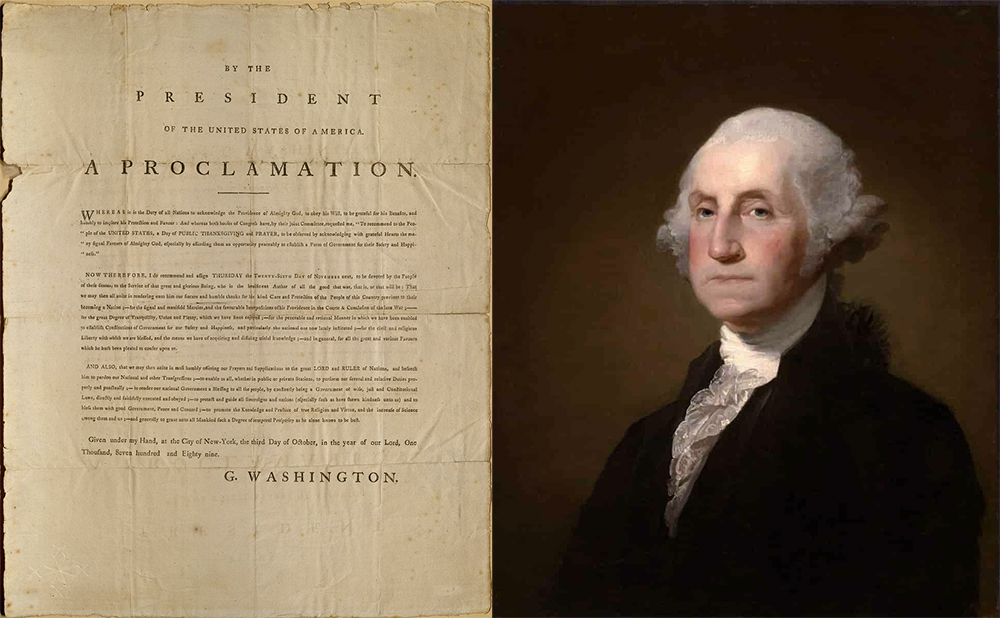It was the fall of 1789. Washington was serving in his first year as the President of the newly formed United States of America.
The wounds of the Revolutionary war were still fresh and many were reeling from the failures of the Articles of Confederation. Even so, the people began again in the task of building a nation.
It was at the time of the ratification of the U.S. Constitution that the representative from New Jersey, Elias Coudinot, proposed a National Day of Thanksgiving as a day to give thanks to the Almighty together as a nation. President Washington agreed and issued a proclamation that set aside November 26, Thursday, as a national day of thanks.
In the proclamation, he wrote:
[New York, 3 October 1789]
NOW THEREFORE, I do recommend and assign THURSDAY the TWENTY-SIXTH DAY of NOVEMBER next to be devoted by the People of these States to the service of that great and glorious Being, who is the beneficent Author of all the good that was, that is, or that will be: That we may then all unite in rendering unto him our sincere and humble thanks for his kind care and protection of the People of this Country previous to their becoming a Nation ;—for the signal and manifold mercies, and the favorable interpositions of his Providence which we experienced in the course and conclusion of the late war ;—for the great degree of tranquillity, union, and plenty, which we have since enjoyed ;—for the peaceable and rational manner, in which we have been enabled to establish constitutions of government for our safety and happiness, and particularly the national One now lately instituted ;—for the civil and religious liberty with which we are blessed, and the means we have of acquiring and diffusing useful knowledge; and in general for all the great and various favors which he hath been pleased to confer upon us.
AND ALSO, that we may then unite in most humbly offering our prayers and supplications to the great LORD and RULER of Nations, and beseech him to pardon our national and other transgressions ;—to enable us all, whether in public or private stations, to perform our several and relative duties properly and punctually ;—to render our national government a blessing to all the people, by constantly being a Government of wise, just, and constitutional laws, discreetly and faithfully executed and obeyed ;—to protect and guide all Sovereigns and Nations (especially such as have shewn kindness unto us) and to bless them with good government, peace, and concord ;—to promote the knowledge and practice of true religion and virtue, and the increase of science among them and us ;—and generally to grant unto all Mankind such a degree of temporal prosperity as he alone knows to be best.
Given under my hand at the City of New-York the third day of October in the year of our Lord 1789.
In this, he acknowledged the shortcomings and transgressions of the newly formed nation but expressed immense gratitude for the civil and religious liberties that had been secured through the Revolution.
He also expressed hopes for the continued guidance and blessings granted to the new nation, not only for the nation but to set a precedent for all sovereign nations of the world.
Washington’s Thanksgiving Proclamation reminds us of our American heritage. Our story starts with a yearning to freely worship God. God is and has been part and parcel of every significant chapter of our American story. Although our story is not perfect, it has been a continual quest to strive towards a “more perfect union.”
Moreover, our story is not one that seeks only our own benefit; we are a “City on a Hill,” observed by the entire globe. In fulfilling the promise of the American Dream, a government “by, for and of the people”, we bring benefit to all humanity.
Happy Thanksgiving.

